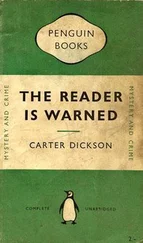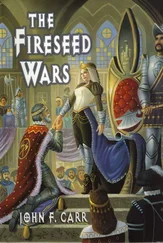John le Carré - The Honourable Schoolboy
Здесь есть возможность читать онлайн «John le Carré - The Honourable Schoolboy» весь текст электронной книги совершенно бесплатно (целиком полную версию без сокращений). В некоторых случаях можно слушать аудио, скачать через торрент в формате fb2 и присутствует краткое содержание. Год выпуска: 1977, ISBN: 1977, Жанр: Триллер, на английском языке. Описание произведения, (предисловие) а так же отзывы посетителей доступны на портале библиотеки ЛибКат.
- Название:The Honourable Schoolboy
- Автор:
- Жанр:
- Год:1977
- ISBN:0-340-49490-5
- Рейтинг книги:5 / 5. Голосов: 1
-
Избранное:Добавить в избранное
- Отзывы:
-
Ваша оценка:
- 100
- 1
- 2
- 3
- 4
- 5
The Honourable Schoolboy: краткое содержание, описание и аннотация
Предлагаем к чтению аннотацию, описание, краткое содержание или предисловие (зависит от того, что написал сам автор книги «The Honourable Schoolboy»). Если вы не нашли необходимую информацию о книге — напишите в комментариях, мы постараемся отыскать её.
The Honourable Schoolboy — читать онлайн бесплатно полную книгу (весь текст) целиком
Ниже представлен текст книги, разбитый по страницам. Система сохранения места последней прочитанной страницы, позволяет с удобством читать онлайн бесплатно книгу «The Honourable Schoolboy», без необходимости каждый раз заново искать на чём Вы остановились. Поставьте закладку, и сможете в любой момент перейти на страницу, на которой закончили чтение.
Интервал:
Закладка:
'Handles the geriatric side, your Grace. Taking a swing through Asia.'
Whoever he was, it was clear that Craw stood in awe of the podgy man, for he even called him 'your Holiness'. Luke had felt he was intruding and left without getting drunk.
So there it was. Thesinger's moonlight flit, old Craw's near death and resurrection; his swansong in defiance of so much hidden censorship; Luke's restless preoccupation with the secret world; the Circus's inspired exploitation of a necessary evil. Nothing planned but, as life would have it, a curtain-raiser to much that happened later. A typhoon Saturday; a ripple on the plunging, fetid, sterile, swarming pool which is Hong Kong; a bored chorus, still without a hero. And, curiously, a few months afterwards, it fell once more to Luke, in his role of Shakespearean messenger, to announce the hero's coming. The news came over the house wire while he was on stand-by and he published it to a bored audience with his customary fervour:
'Folks! Give ear! I have news! Jerry Westerby's back on the beat, men!
Heading out East again, hear me, stringing for that same damn comic!'
'His lordship!' the dwarf cried at once in mock ecstasy. 'A dash of blue blood, I say, to raise the vulgar tone! Oorah for quality, I say.' With a profane oath, he threw a napkin at the wine rack. 'Jesus,' he said, and emptied Luke's glass.
Chapter 2 — The Great Call
0n the afternoon the telegram arrived, Jerry Westerby was hacking at his typewriter on the shaded side of the balcony of his rundown farmhouse, the sack of old books dumped at his feet. The envelope was brought by the black-clad person of the postmistress, a craggy and ferocious peasant who with the ebbing of traditional forces had become the headman of the ragtag Tuscan hamlet. She was a wily creature but today the drama of the occasion had the better of her, and despite the heat she fairly scampered up the arid track. In her ledger the historic moment of delivery was later put at six past five, which was a lie but gave it force. The real time was five exactly. Indoors Westerby's scrawny girl, whom the village called the orphan, was hammering at a stubborn piece of goat's meat, vehemently, the way she attacked everything. The greedy eye of the postmistress spotted her, at the open window and from a good way off: elbows stuck out all ways and her top teeth jammed on to her lower lip: scowling, no doubt, as usual.
'Whore,' thought the postmistress passionately, 'now you have what you have been waiting for!'
The radio was blaring Verdi: the orphan would hear only classical music, as the whole village had learned from the scene she had made at the tavern the evening when the blacksmith tried to choose rock music on the juke box. She had thrown a pitcher at him. So what with the Verdi, and the typewriter and the goat, said the postmistress, the row was so deafening that even an Italian would have heard it.
Jerry sat like a locust on the wood floor, she recalled — maybe he had one cushion — and he was-using the booksack as a footstool. He sat splayfooted, typing between his knees. He had bits of flyblown manuscript spread round him, which were weighted with stones against the red-hot breezes which plagued his scalded hilltop, and a wicker flask of the local red at his elbow, no doubt for, the moments, known even to the greatest artists, when natural inspiration failed him. He typed the eagle's way, she told them later amid admiring laughter: much circling before he swooped. And he wore what he always wore, whether he was loafing fruitlessly around his bit of paddock, tilling the dozen useless olive trees which the rogue Franco had palmed off on him, or paddling down to the village with the orphan to shop, or sitting in the tavern over a sharp one before embarking on the long climb home: buckskin boots which the orphan never brushed, and were consequently worn shiny at the too, ankle socks which she never washed, a filthy shirt, once white, and grey shorts that looked as though they had been frayed by hostile dogs, and which an honest woman would long ago have mended. And he greeted her with that familiar burry rush of words, at once bashful and enthusiastic, which she did not understand in detail, but only generally, like a news broadcast, and could copy, through the black gaps of her decrepit teeth, with surprising flashes of fidelity.
'Mama Stefano, gosh, super, must be boiling.
Here, sport, wet your whistle,' he exclaimed, while he slapped down the brick steps with a glass of wine for her, grinning like a schoolboy, which was his nickname in the village: the schoolboy, a telegram for the schoolboy, urgent from London! In nine months no more than a wad of paperback books and the weekly scrawl from his child, and now out of a blue sky this monument of a telegram, short like a demand, but fifty words prepaid for the reply! Imagine, fifty, the cost alone! Only natural that as many as possible should have tried their hand at reading it.
They had choked at first over honourable: 'The honourable Gerald Westerby.' Why? The baker, who had been a prisoner-of-war in Birmingham, produced a battered dictionary: having honour, title of courtesy given to the son of nobleman. Of course. Signora Sanders, who lived across the valley had already declared the schoolboy to be of noble blood. The second son of a press baron, she had said, Lord Westerby a newspaper proprietor, dead. First the paper had died, then its owner — thus Signora Sanders, a wit, they had passed the joke round. Next regret, which was easy. So was advise. The postmistress was gratified to discover, against all expectation, how much good Latin the English had assimilated despite their decadence. The word guardian came harder for it led to protector, thence inevitably to unsavoury jokes among the menfolk, which the postmistress stamped on angrily. Till at last, step by step, the code was broken and the story out. The schoolboy had a guardian, meaning a substitute father. This guardian lay dangerously ill in hospital, demanding to see the schoolboy before he died. He wanted nobody else. Only honourable Westerby would do. Quickly they filled in the rest of the picture for themselves: the sobbing family gathered at the bedside, the wife prominent and inconsolable, refined priests administering the last sacraments, valuables being locked away, and all over the house, in corridors, back kitchens, the same whispered word: Westerby — where is honourable Westerby?
Lastly the telegram's signatories remained to be interpreted. There were three and they called themselves solicitors, a word which triggered one more swoop of dirty innuendo before notary was arrived at, and faces abruptly hardened. Holy Maria. If three notaries were involved, then so were large sums of money. And if all three had insisted upon signing, and prepaid that fifty word reply to boot, then not just large but mountainous sums! Acres! Wagon loads! No wonder the orphan had clung to him so, the whore! Suddenly everyone was clamouring to make the hill climb. Guido's Lambretta would take him as far as the water tank, Mario could run like a fox, Manuela the chandler's girl had a tender eye, the shadow of bereavement sat well on her. Repulsing all volunteers — and handing Mario a sharp cuff for the presumption — the postmistress locked the till and left her idiot son to mind the shop, though it meant twenty sweltering minutes and — if that cursed furnace of a wind was blowing up there — a mouthful of red dust for her toil.
They had not made enough of Jerry at first. She regretted this now, as she laboured through the olive groves, but the error had its reasons. First, he had arrived in winter when the cheap buyers come. He arrived alone, but wearing the furtive look of someone who has recently dumped a lot of human cargo, such as children, wives, mothers: the postmistress had known men in her time, and she had seen that wounded smile too often not to recognise it in Jerry: 'I am married but free,' it said, and neither claim was true. Second, the scented English major brought him, a known pig who ran a property agency for exploiting peasants: yet another reason to spurn the schoolboy. The scented major showed him several desirable farmhouses, including one in which the postmistress herself had an interest — also, by coincidence, the finest — but the schoolboy settled instead for the pederast Franco's hovel stuck on this forsaken hilltop she was now ascending: the devil's hill, they called it; the devil came up here when hell became too cool for him. Slick Franco of all people, who watered his milk and his wine and spent his Sundays simpering with popinjays in the town square! The inflated price was half a million lire of which the scented major tried to steal a third, merely because there was a contract.
Читать дальшеИнтервал:
Закладка:
Похожие книги на «The Honourable Schoolboy»
Представляем Вашему вниманию похожие книги на «The Honourable Schoolboy» списком для выбора. Мы отобрали схожую по названию и смыслу литературу в надежде предоставить читателям больше вариантов отыскать новые, интересные, ещё непрочитанные произведения.
Обсуждение, отзывы о книге «The Honourable Schoolboy» и просто собственные мнения читателей. Оставьте ваши комментарии, напишите, что Вы думаете о произведении, его смысле или главных героях. Укажите что конкретно понравилось, а что нет, и почему Вы так считаете.








